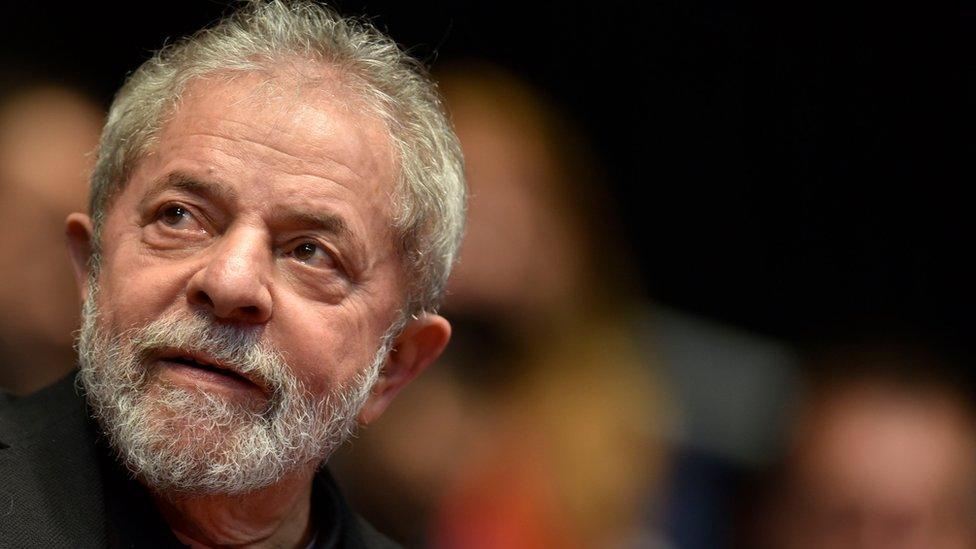Brazil economy: Rousseff refuses to resign
- Published
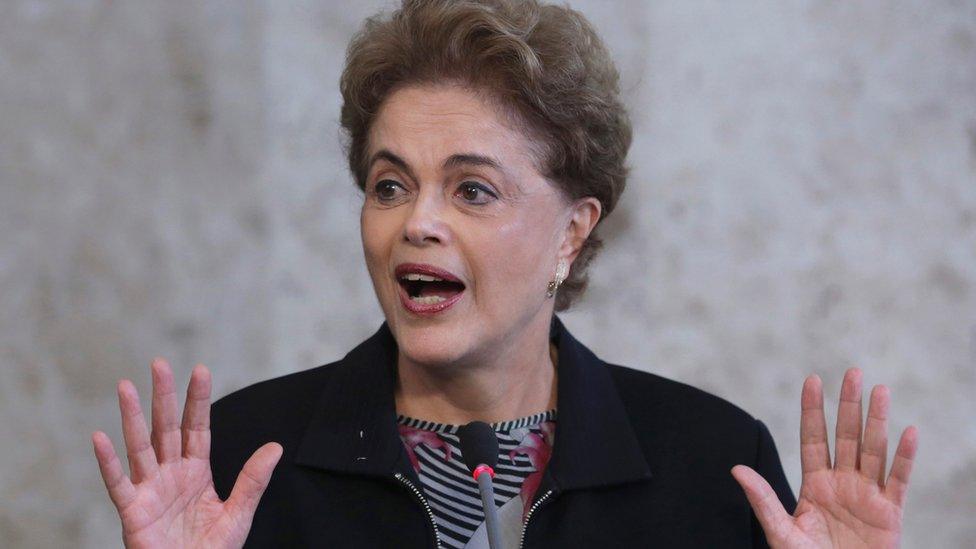
Dilma Rousseff said the opposition had sparked a crisis which was hurting the economy
The Brazilian President, Dilma Rousseff, has insisted she will not resign over her alleged mishandling of the economy after moves to impeach her.
She accused her opponents of causing a political crisis which she said had damaged the economy.
Ms Rousseff also defended her predecessor, Luiz Inacio Lula da Silva, over money-laundering allegations.
She said a prosecutors' request for his detention had no legal basis.
The ongoing crisis has deepened the worst recession in decades in Brazil - Latin America's biggest economy.
Ms Rousseff said she had been democratically elected and had no intention of going.
The Workers' Party leader has also come under increasing pressure in recent months over a huge corruption investigation, centred on the state-controlled oil company Petrobras, the BBC's Wyre Davies reports.
The inquiry has implicated several business leaders and politicians close to the government including Lula.
With large anti-government protests expected this weekend across Brazil, the president's resolve will be tested even further, our South America correspondent adds.
Pressure on Lula
Regional prosecutors in Sao Paulo want Lula placed in "preventive custody" after charging him with failing to declare ownership of a luxury sea-front penthouse in the seaside resort of Guaruja.
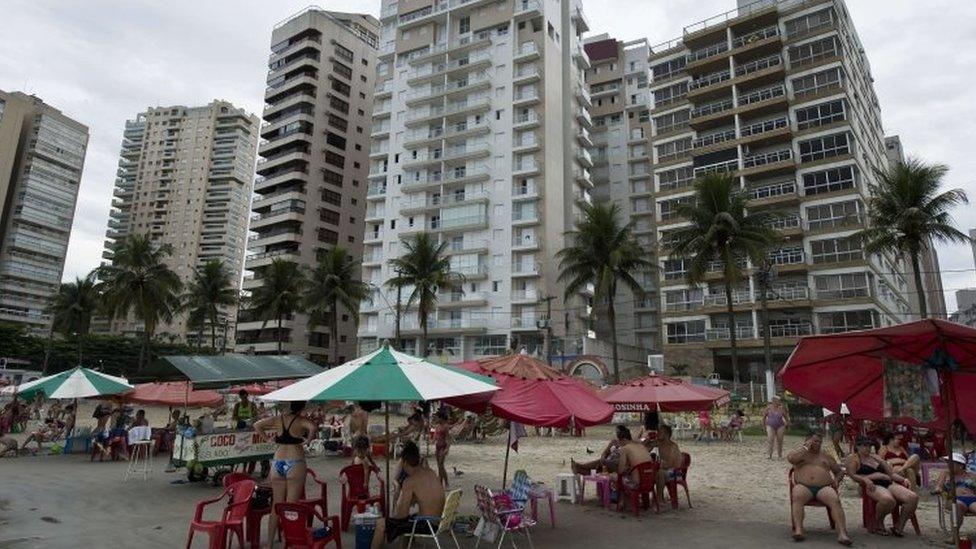
The inquiry centres on a luxury penthouse (centre) in the resort of Guaruja
They say this is necessary because he may try to obstruct the investigation. The request still has to be accepted or rejected by a judge.
Lula, 70, denies any wrongdoing and says the claims are politically motivated. He says he never owned the apartment.
His lawyer, Cristiano Zanin Martins, said Lula had invested in the project and had visited the unfinished apartment but later asked for his money back rather than receiving the property.
President Rousseff refused to comment on a possible cabinet job for Lula but said she would be proud to have him in her government.
Last week, Lula was briefly detained and questioned in a separate, federal investigation into whether extensive refurbishment on the penthouse had constituted favours in exchange for political benefit.
The renovations were carried out by one of the country's biggest construction firms, OAS.
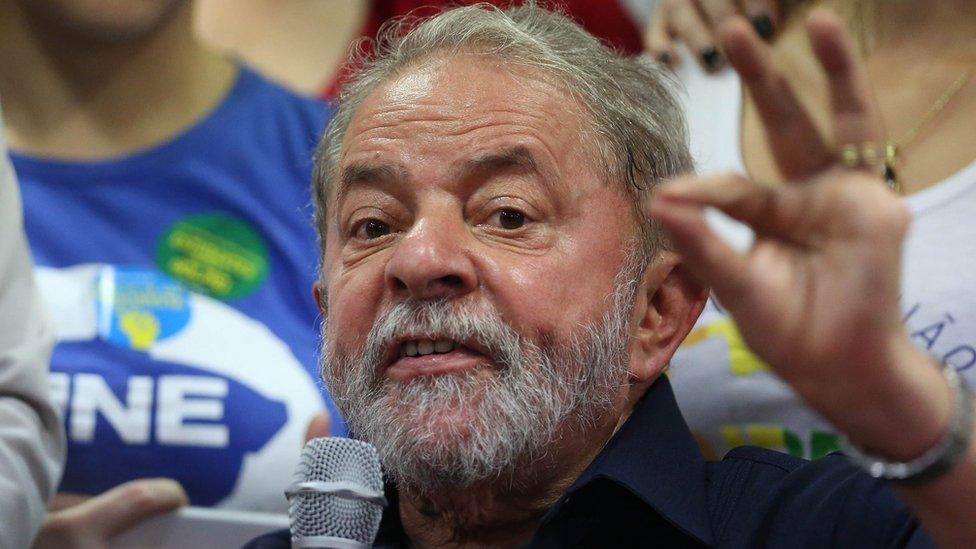
Lula says the accusations against him are politically motivated
Officially the apartment belongs to OAS, which is itself accused of paying bribes to politicians and senior officials at state oil company Petrobras to secure lucrative contracts.
In addition, federal prosecutors are looking into allegations that Lula sold his influence in President Rousseff's administration in exchange for donations to his Instituto Lula non-profit foundation.
Last week's questioning of the former president led to criticism not only from his supporters but also from judges and politicians, who said it was unnecessary.
His supporters say the attacks on him are aimed at tarnishing his reputation, amid rumours that he may run for office again in 2018.
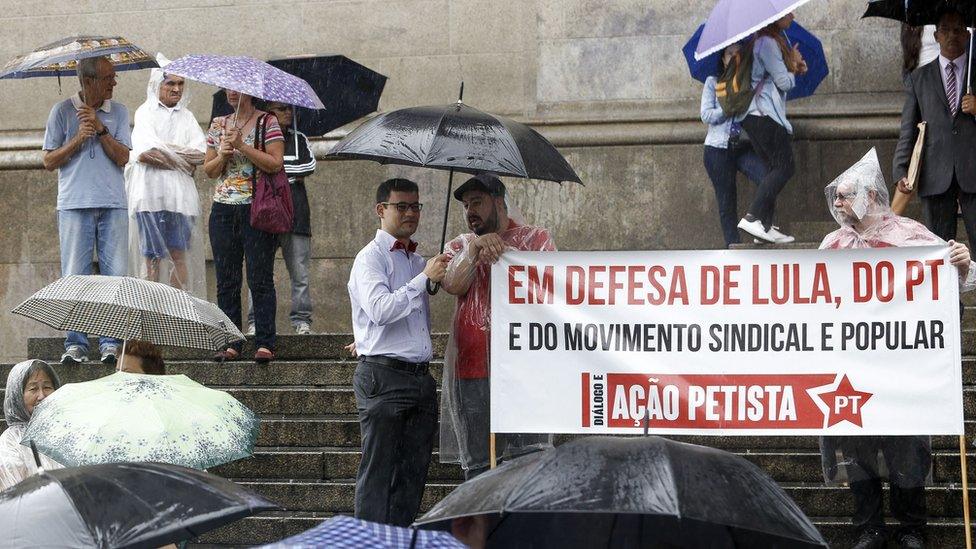
Lula remains a very popular figure in Brazil
Lula was Brazil's left-leaning president from 2003 to 2011 and was succeeded in office by his political protege, Ms Rousseff, who has record-low approval rates amid a serious economic crisis.
A former factory worker and union leader, Lula remains a very popular figure in Brazil despite the accusations against senior members of the Workers' Party.
- Published5 March 2016
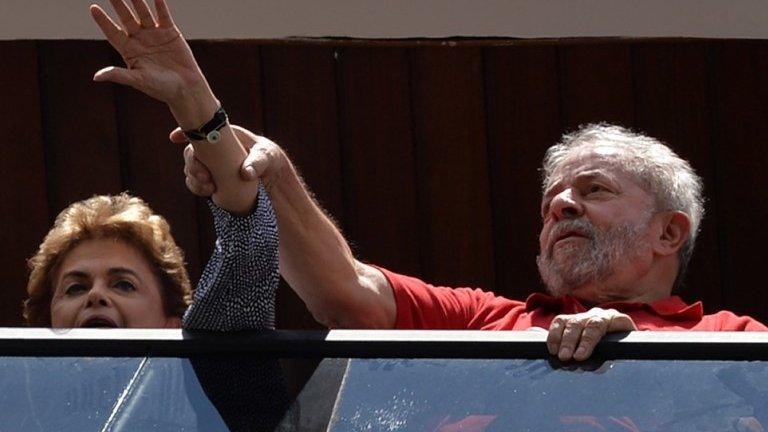
- Published17 February 2016
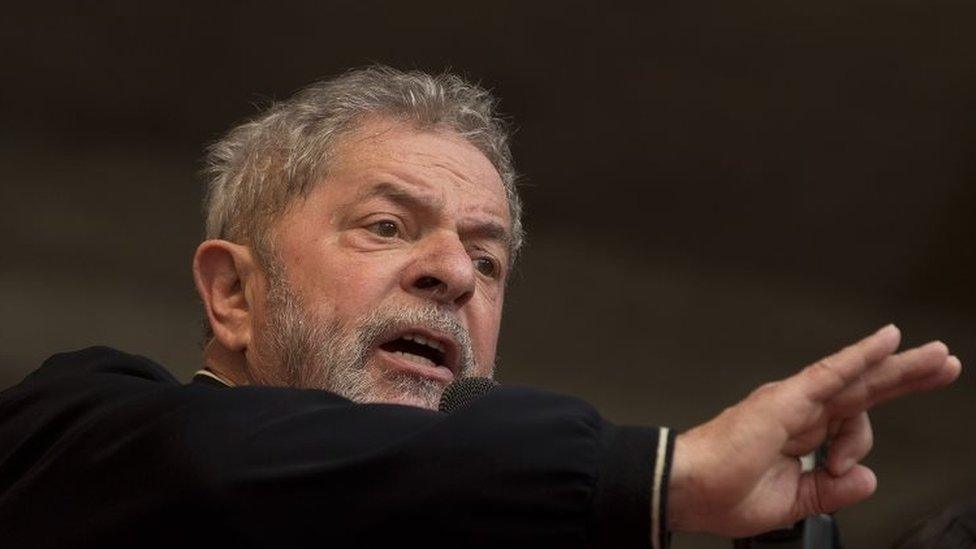
- Published11 June 2019
